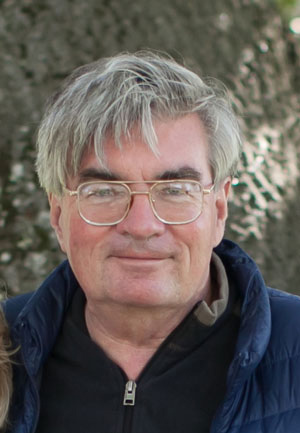

How Wheels Have Changed Over the Last 50 years
How Wheels Have Changed Over the Last 50 years
by John Neugent
Tech articles | Commentary articles
The late John Neugent probably knew more about bicycle wheels than anyone else. Maybe more about bikes as well. He spent his life in the bike business, at every level. He owned Neugent Cycling, a firm devoted to delivering world-class equipment at the lowest possible price. —Chairman Bill

John Neugent

Les Woodland's book Cycling Heroes: The Golden Years is available in the print, Kindle eBook & audiobook versions. To get your copy, just click on the Amazon link on the right.
John Neugent writes:
Wheel technology has come a long way since I started riding seriously in the '70s. That's actually a huge understatement. The hubs, bearings, spokes, and rims have all undergone major changes. Back then, the hubs were cup and cone, which were heavier and much more difficult to service.
The bearings were loose, not sealed, and often pitted the bearing surfaces relatively quickly. The spokes were orders of magnitude weaker, requiring more of them in the wheels, adding weight and reducing aerodynamics. The alloys used in the rims were also weaker, resulting in heavier rims that needed more spokes for durability.

A Cinelli-built Campagnolo Super Record Torelli bike of 1982 with a steel frame and 36-spoke wheels.
My old partner in our bike shop liked old cars. I think he had a '58 Cadillac. He was surprised to find out that newer cars were made better. The same is true for most bikes and components, and it's almost always an evolutionary process rather than a revolutionary one.
Steel makers find different alloys and processes, and spoke makers do the same. The same goes for aluminum in the rims, and the development and introduction of carbon rims, which were a messy process. Both allowed for greater aerodynamics with fewer spokes and deeper rims. Hubs have also improved dramatically, with my normal higher-end hub being far superior to the best hubs of the early '70s.

Adam Yates riding modern deep-section, low spoke count wheels in stage 17 of the 2023 Tour de France. Sirotti photo.
Some of this improvement is also due to the amazing increase in technology coming out of Taiwan, and for some things, China. I vaguely remember visiting a computer chip company in Taiwan in the early '80s. They were making some bike part or component, or I wouldn't have been in the factory.
Now, TSMC out of Taiwan is the highest-end fabricator in the world for the highest-end chips. If anything, the speed of change is going to increase because of AI and some of the new materials, like graphene, the strongest and lightest material known. But give me an old steel bike with 36-spoke wheels, and I'll be fine. It's the enjoyment of riding that doesn't change.
John Neugent was was one of the first to establish quality hand building in Taiwan around the turn of the century. He now owns Neugent Cycling, a firm devoted to delivering world-class equipment at the lowest possible price.







